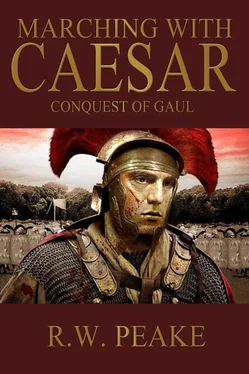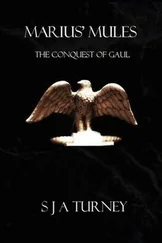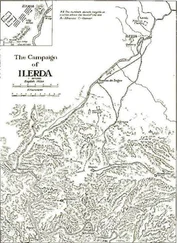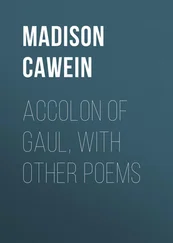R. Peake - Marching With Caesar - Conquest of Gaul
Здесь есть возможность читать онлайн «R. Peake - Marching With Caesar - Conquest of Gaul» весь текст электронной книги совершенно бесплатно (целиком полную версию без сокращений). В некоторых случаях можно слушать аудио, скачать через торрент в формате fb2 и присутствует краткое содержание. Жанр: Исторические приключения, на английском языке. Описание произведения, (предисловие) а так же отзывы посетителей доступны на портале библиотеки ЛибКат.
- Название:Marching With Caesar: Conquest of Gaul
- Автор:
- Жанр:
- Год:неизвестен
- ISBN:нет данных
- Рейтинг книги:3 / 5. Голосов: 1
-
Избранное:Добавить в избранное
- Отзывы:
-
Ваша оценка:
- 60
- 1
- 2
- 3
- 4
- 5
Marching With Caesar: Conquest of Gaul: краткое содержание, описание и аннотация
Предлагаем к чтению аннотацию, описание, краткое содержание или предисловие (зависит от того, что написал сам автор книги «Marching With Caesar: Conquest of Gaul»). Если вы не нашли необходимую информацию о книге — напишите в комментариях, мы постараемся отыскать её.
Marching With Caesar: Conquest of Gaul — читать онлайн бесплатно полную книгу (весь текст) целиком
Ниже представлен текст книги, разбитый по страницам. Система сохранения места последней прочитанной страницы, позволяет с удобством читать онлайн бесплатно книгу «Marching With Caesar: Conquest of Gaul», без необходимости каждый раз заново искать на чём Вы остановились. Поставьте закладку, и сможете в любой момент перейти на страницу, на которой закончили чтение.
Интервал:
Закладка:
R. W. Peake
Marching With Caesar: Conquest of Gaul
Prologue
When you are old, you dream a great deal. Some of these dreams are pleasant, but for an old man who marched with Caesar and spent forty years under the standard, just as many of them are the type that leaves you screaming awake, your nightclothes drenched in sweat. And there is one in particular that haunts me the most.
I am once again a young Gregarius , standing in the ranks of the First Century, Second Cohort of the 10th Legion, Caesar’s Legion. Because of my size I am standing on the right end of the last rank, while Sextus Scribonius is in his usual place to my left. Farther down the line is my childhood friend and close comrade Vibius Domitius. We are formed up, standing silently in the growing light of a dawn morning, staring at the smoldering fires of a large camp, filled with the forms of sleeping men, women and children. These are the Usipetes and Tencteri, two tribes from across the Rhenus (Rhine) who have openly defied Caesar’s orders, and they are about to be punished for that defiance. I stand, shifting nervously from one foot to the other, and even in my dream I can feel the twisting of my stomach that always happens before we are about to see action. A line of cold sweat is trickling down between my shoulder blades, despite the chill in the early September air; we are farther north and east than we have ever been to this point, and winter comes early in those parts. In other words, in most ways it is the normal sensations one experiences before battle, but this time will be very, very different.
We have drawn up in a line of Cohorts side by side, in order to surround the camp, spending most of the night moving into position, as quietly as possible for an army of our size. We are now just 300 paces away, all of the enemy sentries placed around the camp having been silenced by men selected for their stealth and skill in the silent kill. Caesar, in his red paludamentum , the scarlet general’s cloak, is barely visible astride his horse Toes, who is now almost as famous as his rider is. He is positioned in front of the 10th, as we are his favorite Legion, a fact that we take great pride in and the other Legions resent a great deal, which pleases all of us to no end. All of our eyes are on Caesar, waiting for him to raise his sword and unleash the Furies down onto the unsuspecting heads of these Germans. Because of my height, I have an unobstructed view of our general, so I see him as he draws his sword and I feel my hands tightening their grip, one on my shield, and one on my javelin. He raises his weapon into the air, while turning to address his cornicen , the man carrying the great curved horn that will send the blast of notes that signals those men who cannot see Caesar in the pre-dawn from where they are ringed around the camp. The sounds of those notes will be the first idea these Germans get that the moment of their death has arrived, Caesar giving very strict and explicit orders that no man, woman or child is to be left alive. The thought strikes me, as I stand waiting, what a queer feeling it must be to go from sound sleep to the realization that your life can be measured in a finite fashion, that you only have a certain number of breaths to take, a certain number of heartbeats left. Of course, all of our lives are finite but when that number is down to a veritable handful, what a strange feeling that must be.
My rumination is interrupted by the sight of Caesar’s sword swinging downward in a silver blur, to end pointing at the camp, as almost simultaneously the cornicen fills his lungs and blows the horn on his shoulder. The heavy bass notes blast through the air, but only for a moment are they audible, instantly replaced by the roaring of thousands of men, all of us shouting at the top of our lungs as our Centurions give the order to begin the assault. Normally, we would approach at a steady march, in complete silence until the last moment, but as usual Caesar has been very thorough, being ordered to make as much noise as possible and to start at the dead run. All of this is done in order to maximize the surprise and confusion on the part of the Usipetes and Tencteri, in the hope that they are disoriented to the point where they are slow to react. We will arrive at the camp a bit winded, it is true, but for what we are about to do it should not be a problem. It does not take all that much effort to plunge a sword or javelin into the bodies of sleeping or just-roused people.
As expected, the surprise is total, as we come pounding into the camp itself, our roar now being met by the cries of surprise and shock from the Germans lying at our feet, clustered in small family groups around a fire. Unlike we Romans, the tribes of Gaul and Germany disdain the use of defenses like a ditch and rampart, preferring instead to draw their wagons together to form a makeshift barrier, but curiously, they do not sleep within its protection. Instead they choose to sleep in the aforementioned family circles, just outside the meager protection of the wagons. I suppose their idea is that their sentries will give them enough warning to allow them to rise and make their way behind the wagons, which is true enough, if their sentries had still been alive. Now these wagons are little more than minor obstacles around which we must navigate, with the front ranks of each Century and Cohort leading the way deeper into the camp. We all know that the key is to penetrate as deeply into the camp as quickly as possible, so our comrades in the front ranks of each Century bypass the first groups of sleeping people, counting on us in the rear to deal with them. My rank comes across our first small bunch of people, most of them just beginning to sit up, their looks of surprise and fear etched in my memory as we fall upon them. I begin using my javelin, my first victim a man of indeterminate age, bearded and heavyset, who is fumbling for his spear next to him. Using an overhand grip, I plunge my javelin directly into his throat, feeling the hardened point scrape against the bone of his neck as I watch his eyes widen in shock, and I remember to twist the javelin as I withdraw it, both to cause more damage and to free it in the event it has lodged in the bone itself, as the man falls away. I am barely conscious of the sound of the woman lying across the fire from the man screaming, but it registers enough that I now turn on her, and using the javelin in the same manner, plunge it deeply into her breast. This time, the softer metal shaft of the javelin, on meeting the stronger resistance of her breastbone, bends a little, though the point still penetrates as it plunges directly into her heart. Letting out a shriek the woman, who I can now see is actually young and very pretty, grabs at the shaft of the javelin, clawing at it in a vain attempt to pull it from her body while her eyes lock with mine. I expect to see hatred and fear there, but instead I see only a great sadness as she looks up at me, dying on the end of my javelin. Although our javelins are specifically designed to do what has just happened and bend, so that once they strike a target after being thrown they are useless to throw back, it means that I must discard it and now draw my sword. Releasing the javelin, I leave it protruding from the chest of the young woman to draw my sword, called the Spanish sword because the Legions of Rome adopted it after facing the tribes in Hispania many, many years ago. It feels good in my hand as I turn my attention away from this fire, looking for other targets, my comrades having taken care of the other people around it.
The air is now filled with the screams of the Usipetes and Tencteri, the full horror of what is happening to them becoming apparent. This also means that some of their men have managed to rise and grab weapons, except instead of banding together, they do the natural thing and stand to defend their own small group. It is a normal instinct to defend one’s own family first, but in truth it just makes our job easier. It is much less of a challenge to defeat one or two men at a time than dozens or hundreds.
Читать дальшеИнтервал:
Закладка:
Похожие книги на «Marching With Caesar: Conquest of Gaul»
Представляем Вашему вниманию похожие книги на «Marching With Caesar: Conquest of Gaul» списком для выбора. Мы отобрали схожую по названию и смыслу литературу в надежде предоставить читателям больше вариантов отыскать новые, интересные, ещё непрочитанные произведения.
Обсуждение, отзывы о книге «Marching With Caesar: Conquest of Gaul» и просто собственные мнения читателей. Оставьте ваши комментарии, напишите, что Вы думаете о произведении, его смысле или главных героях. Укажите что конкретно понравилось, а что нет, и почему Вы так считаете.












